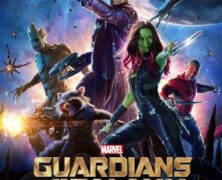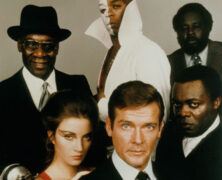“I’m the Doctor. I’ve lived for over two thousand years, and not all of them were good. I’ve made many mistakes. It’s time I did something about that.” This review contains spoilers. It was difficult to keep them out, as there were some things that I absolutely had to praise but unfortunately happened to be the same things that anyone who hasn’t seen the episode should most certainly not know in advance. So if you have come to this page in the hope that you will finally have located a spoiler-free review (they’re hard to come by, now that the episode’s been officially broadcast) – sorry to disappoint you. Stop reading now. Spoilers abound. Just over a year ago, Peter Capaldi was unveiled to the world as the latest actor to take on that iconic role of the Doctor… and not many people knew who he was. The first reaction was of course “Good God, he’s old”, which was a startling (but in my opinion good and inevitable) change from the handsome young boyfriend Doctors that were numbers 10 and 11 (or maybe 11 and 12 – courtesy of Steven Moffat and “The Day of the Doctor”, nobody has a clue anymore). The internet was teeming for the next year with speculation, criticism, occasional praise and special blogs whose creators had done their best to unearth as much information about this Scottish, grandfatherly nobody who had seemingly popped up from nowhere to savagely break traditions and ruin the show for many die-hard fans of Matt Smith’s era. However, people soon discovered that Mr Capaldi had appeared twice before in the Whoniverse, as Lobus Caecilius in the 2008 episode “The Fires of Pompeii” and as John Frobisher in Torchwood: Children of Earth. When Peter Capaldi’s casting was announced, I had just...
GUARDIANS OF THE GALAXY by Cian Morey...
posted by Cloud
Well, well, well. In yet another attempt to satiate the ever-growing hunger for action-packed comic book blockbusters bursting at the seams with more explosions than a game of suicide Minesweeper, Marvel has brought us Guardians of the Galaxy. And what an action-packed seam-bursting blockbuster it is. The plot is this (I think): Peter Quill, a space-pirating anti-hero, stumbles upon an orb on an abandoned planet which, unbeknownst to him, is sought after by the fanatical alien Ronan and other space pirates. This is because it contains an Infinity Stone, an artifact (or should I say MacGuffin?) of immeasurable power that can bulldoze entire planets in seconds flat. After a fight with Gamora, Ronan’s green-skinned assassin who has been sent to seize the orb, Peter Quill is captured and imprisoned, along with Gamora, a mutant anthropomorphic racoon called Rocket and a tree called Groot that can say its name, but nothing else. It is revealed that Gamora is in fact attempting to betray Ronan by selling the orb for a significant sum, and so Quill, Gamora, Rocket, Groot and another inmate called Drax the Destroyer unite to escape the prison and claim the reward for the orb, only to be entangled in a greater conflict and forced to play their part as the unlikely Guardians of the Galaxy. I must admit it took me a long time to write that plot summary and turned out longer than I had hoped, and that is because the plot is, undoubtedly, over-complicated. After a shockingly harrowing scene at the beginning, the film seems to start again in a far lighter mood, and kicks off as a planet-hopping roller-coaster of chaos that can certainly be quite enjoyable, as long as one suspends both disbelief and hopes of a proper,...
Philip Seymour Hoffman...
posted by Cloud
Philip Seymour Hoffman was one of the best actors of his generation. His performance alongside Jude Law and Matt Damon in The Talented Mr Ripley exhibited his ability to be obnoxious, while his role as Art Howe in Moneyball exuded righteous indignation (if not incompetence) and a good measure of integrity. He was as versatile as they come; in Along Came Polly he played a deluded and struggling actor who used to be famous, and who hilariously wants to play both Jesus and Judas simultaneously purely to try to resurrect his non-existent career. He had an unmistakable comic talent. In The Master he was enigmatic, mercurial, authoritative, sinister; in The Big Lebowski he is simpering; in Happiness he is pathetic but lost and frustrated. He had no limitations other than that paunch and those less-than-leading-man looks. He always struck me as a brave actor, willing to commit to a role with honesty and professionalism; mostly he was just so utterly compelling. I used to think that if I were a director with a sufficient budget the first thing I would do is ring Hoffman before Pitt or Clooney or Streep. Having his name on the credit roll meant the movie had legitimacy and qualified the project as proper art, and would guarantee the audience thoughtfulness, humour but mostly believability. I wager he’ll be best remembered for his role in Capote partly because the real Capote was so singular and therefore such a challenge to depict, but also because of the on-screen Capote’s dilemma which says so much about art and the artist’s prerogative. Hoffman is a loss but it’s a privilege to have seen his films while he was alive....
All The West Can Offer...
posted by Cloud
The sad but boringly familiar situation in Israel/Palestine has its roots in a very simple assertion that Zionists and others have made for centuries now, since the 1800s and before – and that is that Palestine is unpeopled in the first instance and Eretz Israel in the second. Early Zionist pioneers/terrorists argued that Israel is much larger than the Israel of today and includes Gaza, the West Bank and Jordan. Successive Israeli administrations feel aggrieved because they haven’t been thanked for eschewing their rightful claim to all of Biblical Palestine/Eretz Israel in the interests of peace; on the contrary, there have been continual attempts by their Arab neighbours to invade and destroy Israel and demands for an end to settlements in the West Bank. Her Arab neighbours comprise nations/factions that openly despise Israel and those who do so secretly, as well those more pragmatic actors who accept the status quo because it is too much trouble not to. Furthermore, the likes of Egypt have learned what happens when you try to take on Israel militarily, something Hamas should have learned by now – and probably have – but prefer martyrdom, especially when they can use dead bodies to advert to Israeli evil. The Palestinian cause is truly pathetic for several reasons: can anyone name a feature film about the suffering of the Palestinians? Most people have no idea about their grievances; they are totally and conclusively outmatched by Israel; other Arab nations are at best dubious about supporting them and are instead simply sitting back and waiting to see it they can gain anything when a rapprochement is reached; Arab nations still suffer from having been Third World nations too close to Russia during the Cold War; Israel has a Western feel to it: its people...
Live and Let Die
posted by Cloud
Live and Let Die used to be my favourite Bond movie, but while seeing it again only the other day I found myself irritated by how often the bad guys could have killed Bond but inexplicably chose not to, or rather decided on ill-advised, over-elaborate and far-from-fool-proof encounters with extreme physical harm instead, when a bullet between the eyes would have sufficed. Now, of course I know that the real reason Bond never dies even though his not-so-mortal enemies have ample opportunity to dispose of him is because it’s written in the script. But yet, that script is supposed, to a reasonably plausible degree – even for Ian Fleming – to represent reality. It seems that Mr Big just isn’t serious about killing Bond. He has him dead to rights at least five times in the movie and insists on these ridiculous machinations. He cuts Bond’s forearm and suspends 007 and Solitaire over a tank of sharks. You see, sharks are very sensitive to blood and can smell it from miles away. He never imagines that Bond has a wristwatch with a circular saw. He has Bond trapped in a secret room but chooses instead to take him outside into a public alleyway to shoot him, where predictably Bond cleverly uses a fire escape ladder to bludgeon his foe. The most ridiculous scene is probably the one in which Mr Big explodes because he obligingly swallows a compressed air pellet fed to him by Bond – but there’s no blood, skin, flesh or anything left of Mr Big except shreds of clothes. Maybe Mr Big was just a balloon all along, and men led by a balloon can’t be effective assassins, let’s be realistic. The best thing about Live and Let Die is not even the huge black...





